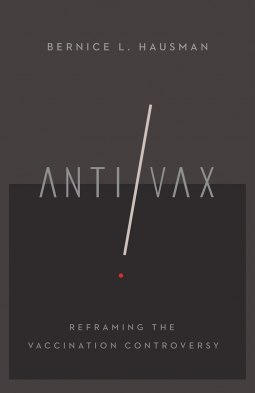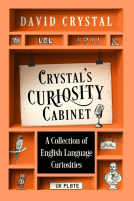
Anti/Vax
Reframing the Vaccination Controversy
by Bernice L. Hausman
This title was previously available on NetGalley and is now archived.
Send NetGalley books directly to your Kindle or Kindle app
1
To read on a Kindle or Kindle app, please add kindle@netgalley.com as an approved email address to receive files in your Amazon account. Click here for step-by-step instructions.
2
Also find your Kindle email address within your Amazon account, and enter it here.
Pub Date Apr 15 2019 | Archive Date Apr 15 2019
Cornell University Press | ILR Press
Talking about this book? Use #AntiVax #NetGalley. More hashtag tips!
Description
Antivaxxers are crazy. That is the perception we all gain from the media, the internet, celebrities, and beyond, writes Bernice Hausman in Anti/Vax, but we need to open our eyes and ears so that we can all have a better conversation about vaccine skepticism and its implications.
Hausman argues that the heated debate about vaccinations and whether to get them or not is most often fueled by accusations and vilifications rather than careful attention to the real concerns of many Americans. She wants to set the record straight about vaccine skepticism and show how the issues and ideas that motivate it—like suspicion of pharmaceutical companies or the belief that some illness is necessary to good health—are commonplace in our society.
Through Anti/Vax, Hausman wants to engage public health officials, the media, and each of us in a public dialogue about the relation of individual bodily autonomy to the state's responsibility to safeguard citizens' health. We need to know more about the position of each side in this important stand-off so that public decisions are made through understanding rather than stereotyped perceptions of scientifically illiterate antivaxxers or faceless bureaucrats. Hausman reveals that vaccine skepticism is, in part, a critique of medicalization and a warning about the dangers of modern medicine rather than a glib and gullible reaction to scaremongering and misunderstanding.
Available Editions
| EDITION | Other Format |
| ISBN | 9781501735622 |
| PRICE | $29.95 (USD) |
| PAGES | 288 |
Links
Average rating from 14 members
Featured Reviews
I think Hausman did a great job with explaining the subtle differences in arguments for the pro/anti-vax movements. It's well researched and humanly explained.
 Librarian 391714
Librarian 391714
Love that someone finally came to the front with a civilized and educated look at the vax debate. Nothing is all good and nothing is all bad. I think Hausman really shows the reader this grey area that exists and raises important questions for both sides to consider.
 Reviewer 550239
Reviewer 550239
This was a well researched and balanced book that I feel comfortable recommending to everyone. I am 100% pro-vaccination and vaccinate my own children (ages 4 and 2) but I don't like a lot of the hostility towards the anti vax parents. Mocking them and calling them stupid only further isolates them and validates some of their fears. It's not just their fear of autism but a distrust of pharmaceutical companies and different view of risk, amongst other things. I like how the author isn't exploring the efficacy of vaccination, but focusing on the people involved in this debate and why we all feel the way we do.
Readers who liked this book also liked:
Jakub Politzer (Illustrator), Christina Dumalasova (adapter), Katerina Horakova (adapter)
Comics, Graphic Novels, Manga, General Fiction (Adult)


















